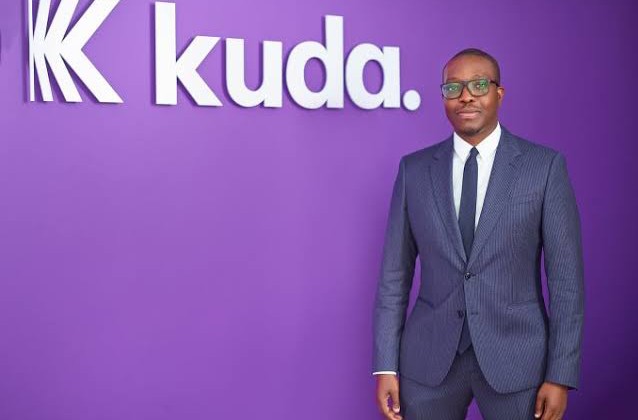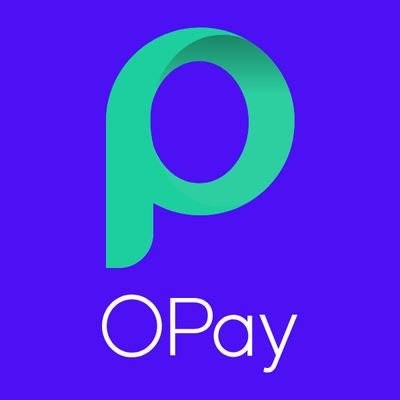Business
Neo-banks in crisis over zero fees, unsecured overdrafts, others

By AYOOLA OLAOLUWA
Nigeria’s neo-banks have continued to stumble, revealing deepening losses and getting hit with complaints from customers.
When they stormed the nation’s financial landscape in the early 2000s with vengeance, digital challenger- banks, also referred to as neo banks, had threatened the dominance of traditional banks, which had for over a century, dominated the Nigerian banking space with the provision of banking services like instant loans, zero charges on withdrawals and deposits, among other services to customers.
They were touted for their innovative offerings and efficient digital operating models as their major strength was providing customers with alternative ways of banking through digital means, such as mobile apps and online platforms, as against the physical brick branches used by traditional banks.
The last 10 years witnessed the steady rise of neo banks, with experts pointing to the sky as the only way up.
And they didn’t disappoint. Apart from receiving waves of commendations from customers, who sang their praises to high heavens, the startups received more than $1.2billion in funding between 2014 and June 2022 from foreign Venture Capital (VC) firms, who had hoped to rake in fortunes.
However, most of the so-called neo banks have been struggling in recent times, with the likes of Kudu Bank and Revolut revealing deepening losses and getting hit with a multitude of complaints from customers about service.
What initially seemed like perfect actions and policy decisions by the banks managements have now turned out to be their nemesis.
It would be recalled that the banks gained wide acceptance due to most of its offerings and incentives to customers, especially the zero charges on transactions, instant/unsecured loans as well as rising operating expenses.
In September, Nigeria’s leading neo bank, Kuda, to the surprise of many, declared another loss of N6.1.billion ($14,214,681) in its 2021 financial statements.
The loss is about 602% rise from the N868 million ($2,025,295) declared in the 2020 financial year report.
According to the bank’s 2022 financial report obtained by BH, its revenue increased by 4,315% from N72 million in 2020 to N3 billion in 2021.
However, that’s where the good news ends. Despite revenue increasing by 4,315%, the bank closed the year at a net loss of N6.93 billion after all expenses had been deducted.
BH analysis of the report showed that several factors, including high credit loss (bad loans), as well as rising operating expenses were majorly responsible for the poor performance.
The bank’s almost zero fees on financial transactions, especially on transfers and debit cards, is after all proving to be a bad decision.
When the bank opened its doors for business in Nigeria in 2019, transfers on its app were free and it gives out its debit cards to customers without charging the normal quarterly maintenance fees.
As expected, the incentive propelled a massive rush for the bank’s free services. From a customer base of about 50,000 at inception, Kuda currently has 4.2 million customers using its app.
According to data mined from the bank’s website, over 500 million transactions worth more than N50 billion had been made on the app.
The surge in the population of customers necessitated the need to employ more staff to cater to their needs.
However, this comes at a huge cost. According to the 2021 financial statement released by the bank, it’s personnel expenses increased by 500% from N215 million in 2020 to N1.3 billion in 2021 as a result of its ever increasing staff strength.
Apart from having a massive staff count on its payroll, the bank also faced depreciation and amortisation on equipments such as offices, furniture, laptops and others.
Amortisation and depreciation expenses come to N64,326,473, a massive 246% jump from the N18,590,000 the bank expended in 2019.
In 2021, Kuda’s operating expenses (OPEX) catapulted from N936 million (652%) to N7 billion in 2022.
“The income of the firm does not justify this spending in the short time,” the bank stated in the report.
BH reliably gathered that the digital bank has a staff strength of 450 workforce, with more than 95 percent of them high net professionals earning above a million naira monthly.
“The bank’s workforce is heavy from bottom to the top. They have the best hands in the industry. These are top IT and management staff that earn above $5,000 a month.
“The least paid worker, I am not talking of drivers and office cleaners, but young IT whiz kids, earn above N1 million a month.
“Though the wage bill is killing them, the workers have to be well remunerated and made happy or they will be head-hunted by their competitors”, disclosed a source in the industry.
Just like high operating expenses is pushing Kuda into financial ruins, the bank is also battling with high Non Performing loans (NPLs) from the overdrafts it gave to ‘valued’ and ‘trusted” customers.
It would be recalled that Kuda had launched its much sought after overdraft product in 2021, which it made available to over 2,500 of its most active users.
Subscriptions to the product (overdraft) had hit 50,000 weekly by the first week of June 2021.
By the end of June 2021, the bank had disbursed $20 million worth of un-colaterised loans to over 200,000 qualified users, with a repayment period of 30 days.
Kuda’s co-founder and Chief Executive Officer (CEO), Babs Ogundeyi, while speaking on the performance of the loans last year June, claimed the neo bank had seen minimal default because of its diligent approach in vetting applicants.
“We use all the data we have for a customer and allocate the overdraft proportion based on the customer’s activities, aiming for it not to be a burden,” Ogundeyi had proudly declared in June 2021.
However, fast-forwarded to six months later, the loans, unfortunately, have largely failed to perform.
According to the bank, its NPLs as at December 31st 2021, stands at N2.3 bn, about 69% of its loan disbursements
The impairment, the bank further explained to equity holders in the financial statement, eroded 96% of the interest income made from the loans to customers.
The bank, unlike in its core banking services, seems to be faring better in non-banking services like airtime purchases and payments of utilities like energy, waste bills and cable TV subscriptions.
In an effort to shore up its earning in core banking businesses, the management of Kuda Bank in July 2022 implemented a N50 charge on transfers and deposits of N10,000 and above.
It attributed the resort to collecting fees to the directive from the Central Bank of Nigeria (CBN) which mandated it to do so.
Financial experts, however, see the sudden resort to charging fees as a face saving measure, as well as pressures from investors to start declaring profit.
Other neo-banks like Revolut and OPay, BH learnt, are facing similar challenges, which may not go away soon unless the digital banks changed tactics.
“The banks need to explore how to monetize their services. They should get customers to pay for the solution they are providing”, he advised.
Speaking on the development, a corporate communications professional and public affairs analyst Elvis Eromosele, faulted neo-banks’ business models, especially their almost zero charge policy on transactions.
“Banking is not free anywhere, and disruption does not necessarily have to be free. What is important is access, simplicity and ease of use.
“It is worth mentioning that traditional banks generate a big part of their revenue from lending.
“In fact, while Kuda’s NPL ratio ended the year at 69%, the average ratio in the traditional banking industry dropped to 4.8% in the same period.
“Traditional banks mostly extend credit to a few low-risk businesses with substantial collateral that mitigates defaulting, while neobanks only work with users’ activities on their apps,” Eromosele argued.
The corporate communications expert also advised Kuda Bank to either build more risk assessment into its overdraft offering or scrap it entirely.
“However, scrapping the offering would be unwise as lending, if done right, has the potential of pushing the company’s bottom line to a high net positive.
“Kuda’s risk appetite, criteria and strategy relating to retail and business loan calls for immediate restructuring,” he admonished.








